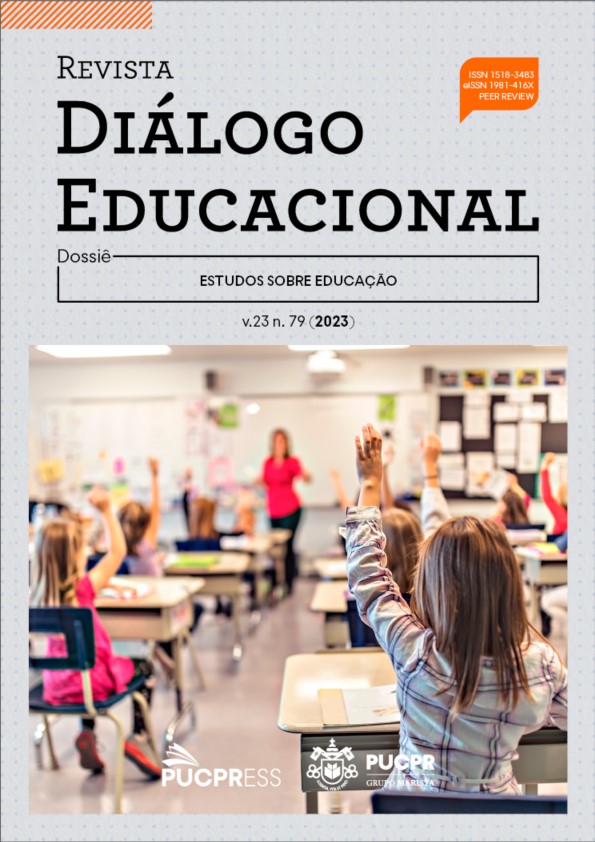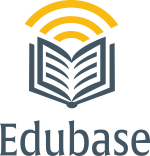Escola e esfera pública
liames entre a pedagogia centrada no aluno e a desinformação
DOI:
https://doi.org/10.7213/1981-416X.23.079.AO11Resumo
O tema deste artigo é a possível relação entre o discurso pedagógico centrado no aluno e a desinformação. O que se objetiva aqui é mostrar que tal discurso pedagógico pode ter levado à “formação” de alunos porosos
à desinformação, ao irracionalismo, à polarização etc. O método de pesquisa empregado foi o teórico e bibliográfico. E a fundamentação conceitual deste artigo se deu a partir da Psicanálise e Educação. O principal resultado obtido se relaciona com a concepção de que a pedagogia centrada no aluno, desde as primeiras décadas do século XX, pode ter centrado narcisicamente o aluno em si mesmo, o que teria ocorrido em função da marginalização do professor, bem como de sua autoridade e alteridade em face dos aprendizes. Além disso, as revoluções tecnológicas endossaram, a partir dos anos 60, tal marginalização docente na escola ao pressupor que a iniciativa do aluno de opinar ferozmente a respeito de tudo seria a expressão mais icônica do dito protagonismo discente. Em face disso, conclui-se aqui que o ensimesmamento narcísico e opiniático dos alunos pode ter sido propício à contemporânea difusão de desinformações, de “teorias” conspiratórias irracionalistas e de pós-verdades, e as quais vêm parasitando – e até mesmo erodindo – a esfera pública.
Downloads
Referências
ARENDT, H. Entre o passado e o futuro. 5. ed. São Paulo: Perspectiva, 2005.
BACHA, M. N. Psicanálise e Educação: laços refeitos. São Paulo: Casa do Psicólogo, 1998.
BATISTA, D. E. Didática Magna e Walden II: Comênio, Skinner e o impossível na educação e na política. Estilos da Clinica, [S. l.], v. 25, n. 1, p. 151-164, 2020. DOI: 10.11606/issn.1981-1624.v25i1p151-164. Disponível em: https://www.revistas.usp.br/estic/article/view/154189. Acesso em: 1 nov. 2023.
BLAIS, M.-C.; GAUCHET, M.; OTTAVI, D. Transmettre, apprendre. Paris: Pluriel, 2014.
BONDÍA, J. L. Notas sobre a experiência e o saber de experiência. Revista Brasileira de Educação, Campinas, n. 19, p. 20-28, 2002. Doi: https://doi.org/10.1590/S1413-24782002000100003.
DUFOUR, D.-R. A arte de reduzir as cabeças: sobre a nova servidão na sociedade ultraliberal. Rio de Janeiro: Companhia de Freud, 2005.
HABERMAS, J. O discurso filosófico da modernidade: doze lições. 2. ed. São Paulo: Martins Fontes, 2002.
LAJONQUIÈRE, L. de. De Piaget a Freud: a (psico)pedagogia entre o conhecimento e o saber. Petrópolis: Vozes, 1992.
LAJONQUIÈRE, L. de. Infância e ilusão (psico)pedagógica: escritos de psicanálise e educação. Petrópolis: Vozes, 1999.
MOTA, R. Racionalidade versus polarização: um tema educacional urgente. Folha de São Paulo, 7 fev. 2023. Disponível em: https://www1.folha.uol.com.br/opiniao/2023/02/racionalidade-versus-polarizacao-um-tema-educacional-urgente.shtml. Acesso em: 8 abr. 2023.
OLIVEIRA, C. Por que é tão difícil corrigir desinformação? Folha de São Paulo, 26 mar. 2023. Disponível em: https://www1.folha.uol.com.br/opiniao/2023/03/por-que-e-tao-dificil-corrigir-desinformacao.shtml. Acesso em: 8 abr. 2023.
SILVA, L. F. e. O mundo vazio: sobre a ausência da política no contexto contemporâneo. In: SILVA, D. A.; MARRACH, S. A. Maurício Tragtenberg: uma vida para as ciências humanas. São Paulo: Editora Unesp, 2001, p. 239-250.
VOLTOLINI, R. et al. Psicanálise e formação de professores: antiformação docente. São Paulo: Zagodoni, 2019.
Downloads
Publicado
Como Citar
Edição
Seção
Licença
Copyright (c) 2023 Editora Universitária Champagnat

Este trabalho está licenciado sob uma licença Creative Commons Attribution 4.0 International License.
O(s) autor(es) transfere(m), por meio de cessão, à EDITORA UNIVERSITÁRIA CHAMPAGNAT, pessoa jurídica de direito privado, inscrita no CNPJ/MF sob o n.º 76.659.820/0009-09, estabelecida na Rua Imaculada Conceição, n.º 1155, Prado Velho, CEP 80.215-901, na cidade de Curitiba/PR, os direitos abaixo especificados e se compromete a cumprir o que segue:
- Os autores afirmam que a obra/material é de sua autoria e assumem integral responsabilidade diante de terceiros, quer de natureza moral ou patrimonial, em razão de seu conteúdo, declarando, desde já, que a obra/material a ser entregue é original e não infringe quaisquer direitos de propriedade intelectual de terceiros.
- Os autores concordam em ceder de forma plena, total e definitiva os direitos patrimoniais da obra/material à EDITORA UNIVERSITÁRIA CHAMPAGNAT, a título gratuito e em caráter de exclusividade.
- A CESSIONÁRIA empregará a obra/material da forma como melhor lhe convier, de forma impressa e/ou on line, inclusive no site do periódico da EDITORA UNIVERSITÁRIA CHAMPAGNAT, podendo utilizar, fruir e dispor do mesmo, no todo ou em parte, para:
- Autorizar sua utilização por terceiros, como parte integrante de outras obras.
- Editar, gravar e imprimir, quantas vezes forem necessárias.
- Reproduzir em quantidades que julgar necessária, de forma tangível e intangível.
- Adaptar, modificar, condensar, resumir, reduzir, compilar, ampliar, alterar, mixar com outros conteúdos, incluir imagens, gráficos, objetos digitais, infográficos e hyperlinks, ilustrar, diagramar, fracionar, atualizar e realizar quaisquer outras transformações, sendo necessária a participação ou autorização expressa dos autores.
- Traduzir para qualquer idioma.
- Incluir em fonograma ou produção audiovisual.
- Distribuir.
- Distribuir mediante cabo, fibra ótica, satélite, ondas ou qualquer outro sistema que permite ao usuário realizar a seleção da obra ou produção para recebê-la em tempo e lugar previamente determinados por quem formula a demanda e nos casos em que o acesso às obras ou produções se faça por qualquer sistema que importe em pagamento pelo usuário.
- Incluir e armazenar em banco de dados, físico, digital ou virtual, inclusive nuvem.
- Comunicar direta e/ou indiretamente ao público.
- Incluir em base de dados, arquivar em formato impresso, armazenar em computador, inclusive em sistema de nuvem, microfilmar e as demais formas de arquivamento do gênero;
- Comercializar, divulgar, veicular, publicar etc.
- Quaisquer outras modalidades de utilização existentes ou que venham a ser inventadas.
- Os autores concordam em conceder a cessão dos direitos da primeira publicação (ineditismo) à revista, licenciada sob a CREATIVE COMMONS ATTRIBUTION LICENSE, que permite o compartilhamento do trabalho com reconhecimento da autoria.
- Os autores autorizam a reprodução e a citação de seu trabalho em repositórios institucionais, página pessoal, trabalhos científicos, dentre outros, desde que a fonte seja citada.
- A presente cessão é válida para todo o território nacional e para o exterior.
- Este termo entra em vigor na data de sua assinatura e é firmado pelas partes em caráter irrevogável e irretratável, obrigando definitivamente as partes e seus sucessores a qualquer título.
- O não aceite do artigo, pela EDITORA UNIVERSITÁRIA CHAMPAGNAT, tornará automaticamente sem efeito a presente declaração.













